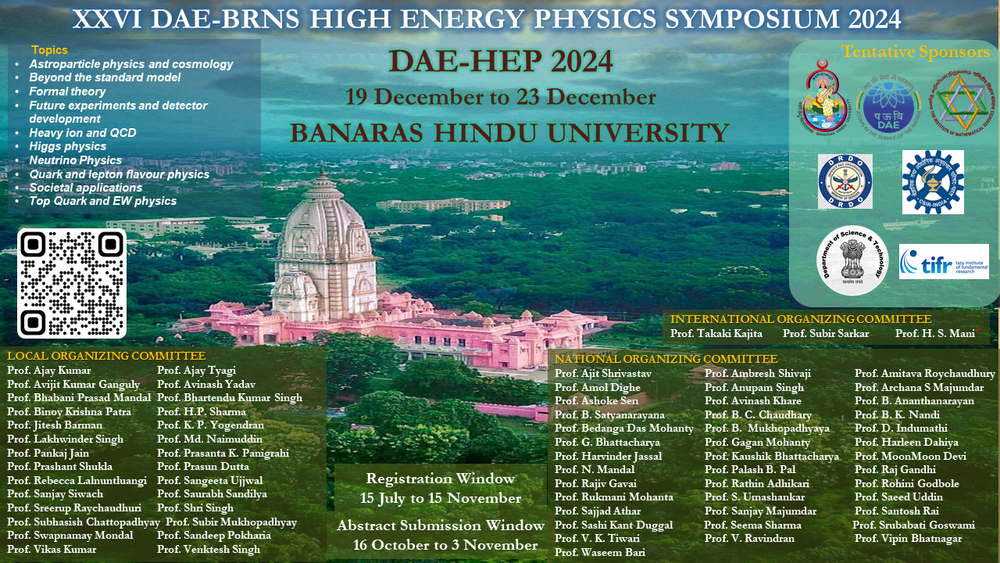Speaker
Description
A fundamental length scale is a key feature of all quantum gravity theories, and non-commutative space-time provides a pathway to incorporate this length scale naturally in the theory. In our study, we investigate the geodesic motion of a test particle around a Schwarzschild black hole in a specific non-commutative space-time ($\kappa$-deformed space-time). We compute a modified Lagrangian to obtain the $\kappa$-deformed effective potential and determine particle trajectories based on constants of motion. Significant deformation is observed in particle orbits due to the non-commutativity of the $\kappa$-deformed space-time, especially at higher angular momentum, resulting in smaller radii and decreased velocities compared to the commutative case. Despite these modifications, the radius of the innermost stable circular orbit ($r_{ISCO}$) remains unchanged. We also study a large number of freely streaming particles in this deformed space-time, focusing on those with different angular momenta. The results show that due to the non-commutativity of space-time, the particles remain closer to the black hole for longer periods. This may lead to the modifications in the accretion process around the black hole.
Keywords: $\kappa$-deformed space-time, non-commutative space-time, particle concentration.
| Field of contribution | Theory |
|---|
